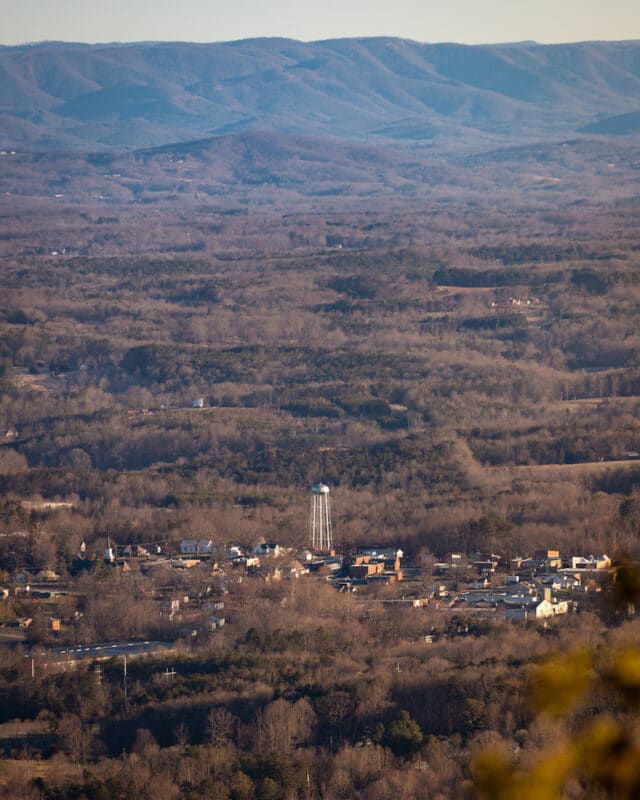About US
We’re on a mission to create opportunity for the communities hardest hit by coal’s decline
We help build resilient communities by promoting solutions that are equitable, inclusive, and low-carbon.
Our FRAMEWORK
We believe in place-based economic development strategies that support local entrepreneurs and build on community assets.
Promote Economic Diversification
Expand Workforce Development
We help scale wraparound workforce development programs that train former coal workers and community members for jobs in the new economy.
Improve Infrastructure
We target efforts to improve and expand infrastructure, like broadband, that is essential for an inclusive economic transition.
Our Process
How We Work
We leverage public and private resources, and guide policy change to accelerate a just economic transition—from the ground up.
-
1Expand Workforce
-
2Stimulate Entrepreneurship
-
3Prepare Workers
-
4Expand Broadband
-
5Advance Policy
Expand Workforce
We support initiatives that build local capacity and advance low-carbon sectors to create and retain wealth locally, including through creatively engaging the private sector or linking rural and urban markets.
Stimulate Entrepreneurship
We support efforts that foster collaboration among entrepreneurs, capital providers, and researchers. We also support efforts to incubate and scale innovative and entrepreneurial training programs.
Prepare Workers
We support workforce development programs that train affected workers and community members for new economy careers, including programs that offer wraparound support, partner with local employers, and create remote work opportunities.
Expand Broadband
We support community-driven broadband projects in places that lack sufficient connectivity in order to realize broadband’s potential to enable new economic development opportunities and reduce economic and social inequities.
Advance Policy
We support advocacy campaigns to create, strengthen, and implement just transition policies at the state and federal levels that drive investment in energy communities and are responsive to local needs and priorities.

Our History
The Just Transition Fund was established in spring 2015 by Rockefeller Family Fund and the Appalachia Funders Network with the support of six other foundation partners: blue moon fund, Chorus Foundation, the Hewlett Foundation, The JPB Foundation, The Mary Reynolds Babcock Foundation, and Mertz Gilmore Foundation.
The Fund was initially created to help local organizations secure funding through the POWER Initiative, the first federal program targeted to communities impacted by the changing coal economy. In the process, we helped jumpstart the engagement of national philanthropy and showcased the innovative, ground-up ways that local communities are working to revitalize their local economies.
We’ve evolved our approach over the years to catalyze and support the national just transition movement more broadly, while helping more communities tap into a growing number of federal funding opportunities and private sector investments.
Where We Work
We focus on mining and power plant communities in major coal-affected areas of the United States. Within these regions, we prioritize support for communities experiencing the most distress, taking into account socioeconomic factors that make economic transition even more challenging.
The West
Areas of the western and southwestern United States are well known for their prolific energy production, with 40 percent of the nation’s coal being mined in the Powder River Basin of Wyoming and Montana. But the region, including many Indigenous communities that have inhabited it for hundreds of years, is beginning to reel as coal plants and mines close.
The Midwest
The Midwest has a long and deep relationship with coal, experiencing booms and busts throughout the 20th century and into recent decades with the expansion of mines in the Illinois Basin. But as demand for the region’s coal declines and cleaner energy outcompetes coal power, more midwestern states and communities are embracing the need for long-term planning, community investment, and policy change.
Appalachia
The rugged landscape of Appalachia’s coal-bearing region is famous for its ecological abundance, narrow ridgelines, and steep valleys. But centuries of industrial-scale and increasingly mechanized coal mining operations have reduced hundreds of mountains to rubble through the use of mountaintop removal mining while producing a legacy of persistent poverty and pollution.
The South
In the heart of the American South, the legacy of coal mining is etched into the landscape, with the mining of lignite as the backbone of the region. The transition away from coal in Texas, once a top producer of lignite in the country, is reshaping the state’s energy landscape, and causing devastation for workers, families, and communities as coal plants close without enough planning, policy, or preparation.
Our Guiding Principles
The Just Transition Fund was founded on a belief in the power of community, collaboration, and the potential for shared prosperity in the places hardest hit by the transition away from coal.